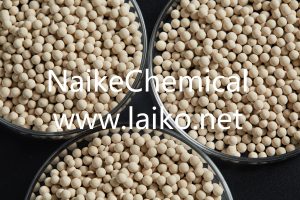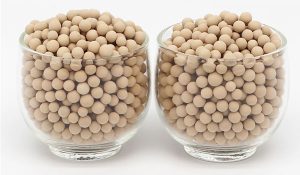Performance of Molecular Sieve
1. What is a molecular sieve?
Molecular sieve is a synthetic hydrated aluminosilicate (bubble zeolite) or natural zeolite with the function of screening molecules. Molecular sieves have a uniform microporous structure, and these tiny pores have a uniform diameter, which can adsorb molecules smaller than their diameter into the pores, thereby separating molecules with different diameters, different polarities, different boiling points, and different saturations, so that it has the function of “sieving” molecules.
2. Types of molecular sieve
Molecular sieves are different according to the pore size, molecular sieve types are A type: potassium A (3A), sodium A (4A), calcium A (5A); X type: calcium X (10X), sodium X (13X); Y type: sodium Y, calcium Y and so on. Molecular sieves have high adsorption capacity, strong selectivity and high temperature resistance.
3. The characteristics of molecular sieve are as follows:
(1) Adsorption
The adsorption of molecular sieves to substances comes from physical adsorption, and its crystal cavity has strong polarity and Coulomb field, and shows strong adsorption capacity for polar molecules and unsaturated molecules.
(2) Ion exchange performance
Generally speaking, ion exchange refers to the exchange of compensation cations outside the framework of the . The compensation ions outside the framework of the zeolite molecular sieve are generally protons and alkali metals or alkaline earth metals, which are easily ion-exchanged into various valence metal ion-type zeolite molecular sieves in the aqueous solution of metal salts. Ions are easier to migrate under certain conditions, such as aqueous solutions or higher temperatures.
In aqueous solution, due to the different ion selectivity of zeolite molecular sieves, different ion exchange properties can be exhibited. The hydrothermal ion exchange reaction between metal cations and zeolite molecular sieves is a free diffusion process. The diffusion rate restricts the exchange reaction rate. Through ion exchange, the pore size of the zeolite molecular sieve can be changed, thereby changing its performance, and achieving the purpose of shape-selective adsorption and separation of the mixture.



